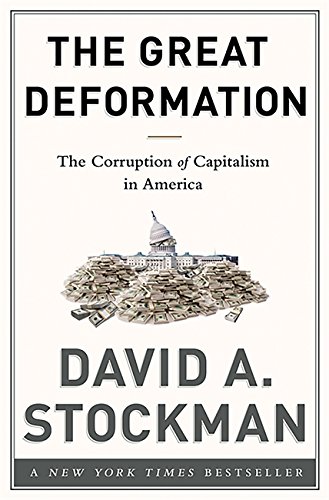A few days ago, on the morning call-in program on C-SPAN, callers were asked to give their opinion on a “wealth tax.”
Most were in favor of a higher tax on “billionaires” or at least the “very rich.”
This is the same way the federal income tax was started in 1913. It was set at a level that applied to very few people, so there was little opposition.
In my home state of Tennessee, the state sales tax started at 3%. Now it is over 9%.
Supporters of a state income tax in Tennessee several years ago tried to ease it by applying it only to upper-income people. Fortunately, we did not fall for this old scheme, and the proposed tax failed.
Now, many people are moving to Tennessee because we do not have a state income tax and relatively low property taxes.
 The Creature from Jeky...
Best Price: $10.58
Buy New $19.49
(as of 05:45 UTC - Details)
The Creature from Jeky...
Best Price: $10.58
Buy New $19.49
(as of 05:45 UTC - Details)
People are moving out of the high tax states as fast as they can get out. And most of the high tax states are having very serious fiscal and infrastructure problems.
Flint, Michigan had highly publicized water problems a few years ago. They had lost almost half their population since the 1970s and couldn’t take care of their infrastructure.
The Congress sent them an extra $250 million. But I said in a speech on the Floor of the House that it was not fair for the low-tax states to always have to bail out the high tax states and cities, but that is what is happening all over the Country.
A state or city that imposes high taxes gets a windfall for a few years at most. But then businesses start moving out, taking people with them, or people have to move to find jobs.
Others move out as soon as they can retire, and young people in Tennessee and other low-tax states are finding it easier to find jobs or start businesses.
It is unfortunate that so few people understand why it is harmful to raise taxes even on the wealthy.
This is because the least economical, least efficient way to spend money is to turn it over to government, especially the federal government—the most wasteful, inefficient of them all.
There just are not as many pressures and/or incentives on government employees to hold down costs and operate efficiently as there are in the private sector.
There is waste and inefficiency in the private sector to be sure, but it pales in comparison to the waste in government at all levels.
It is also true that costs simply explode on anything the federal government subsidizes.
That is why six or seven of the ten wealthiest counties in the U.S. today are counties suburban to Washington, D.C., and why the most lucrative contracts in the U.S. are federal contracts.
It is also why two of the things that have gone up the most in the last 50 years have been two of the very things the federal government subsidizes at the highest levels – medical care and education.
Keeping taxes low and keeping more money in private hands creates more jobs and helps keep prices lower.
The people who benefit the most from lower prices and more jobs are the poor and lower- and middle-income working people.
Now all the Democrat presidential candidates want to repeal the Trump tax cuts, and most of these same candidates probably support the so-called wealth tax.
Apparently, they and their supporters in Congress have forgotten or never learned the lesson of the luxury tax on yachts which began on Jan. 1, 1990.
Just a little over two years later, the Washington Post had a headline reading, “How to Sink an Industry and Not Soak the Rich,” and the New York Times carried a story headlined, “Falling Tax Would Lift All Yachts.”
Even the liberals in Congress at that time admitted that this tax had cost 20,000 to 30,000 jobs in the boatbuilding industry, and there was almost no opposition to its repeal.
Despite President Trump’s recent dustup at the White House with Democratic Congressional leaders, some believe he may go along with some type of tax hike to pay for a massive infrastructure bill since that is what he “loves” and “what he does best.”
I hope he remembers what happened during my first term in Congress when the first President Bush went back on his no new taxes pledge.
 The Great Deformation:...
Best Price: $2.00
Buy New $9.95
(as of 09:55 UTC - Details)
The Great Deformation:...
Best Price: $2.00
Buy New $9.95
(as of 09:55 UTC - Details)
In spite of personal calls from the President, Vice President, and Cabinet members to me and most other Republicans in Congress, Republicans in the House voted 105—71 against the tax increases. Almost all Democrats voted for the tax hike, but because of the President, Republicans got the blame.
Before the President broke his pledge, there were polls showing the Republicans might pick up 20 to 30 seats in the House in the 1990 elections.
Shortly after announcing the tax hikes, just a few weeks before the elections, House Republicans held a panicky, late-night conference in the Cannon Caucus Room.
Ed Rollins, then head of the National Republican Congressional Committee, told us that Republican candidates had lost 10 points almost overnight and advised us to “run as far from the President” as we could. He was fired a day or two later on orders from the White House.
Ten points may not sound like a lot to some people, but it means that those who were ahead 55-45% were suddenly behind by that same margin, or those who were ahead 60-40% were suddenly tied.
Instead of picking up 20-30 seats in that election, the GOP lost 9 seats, going down from 175 to 166.





